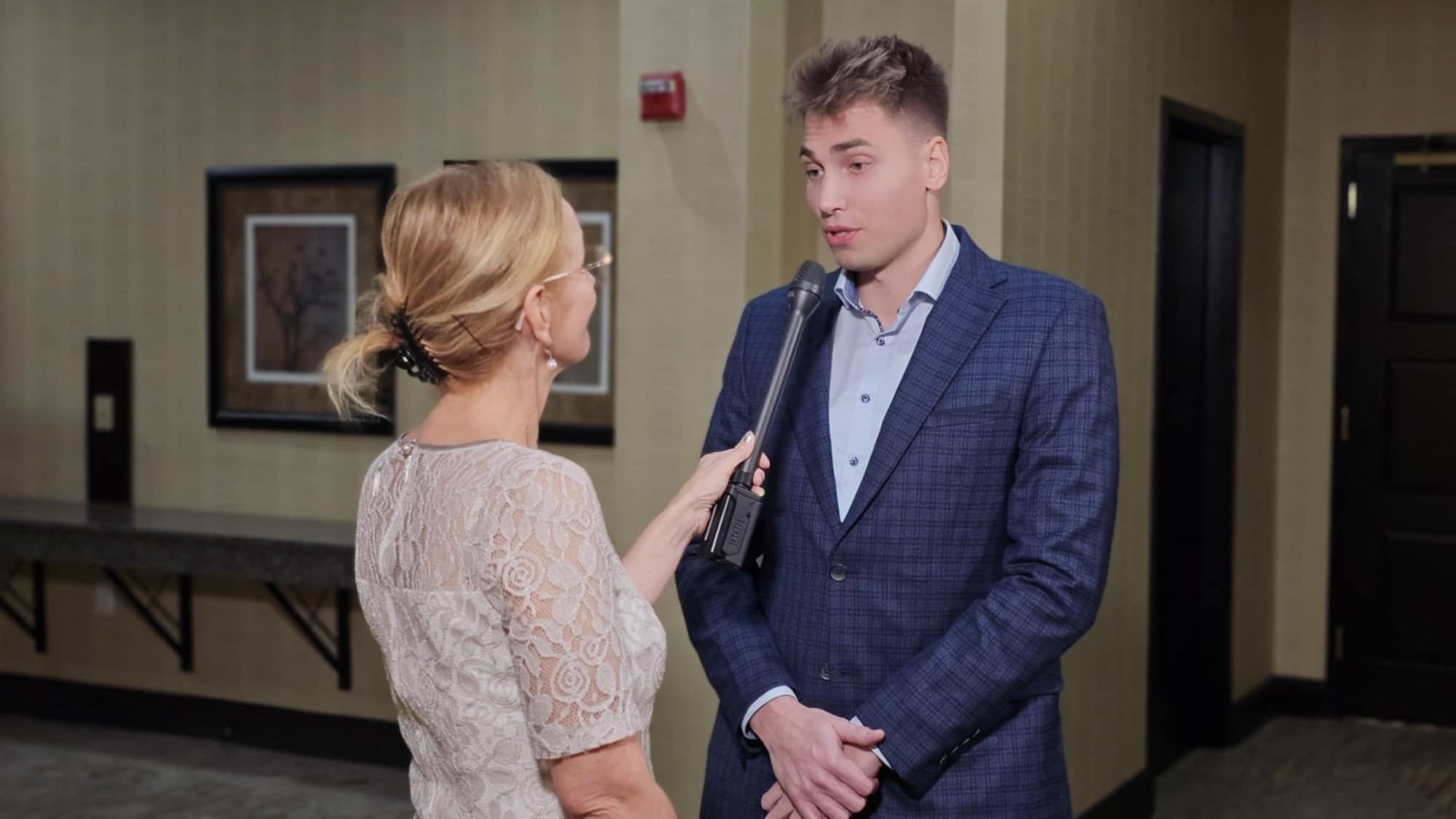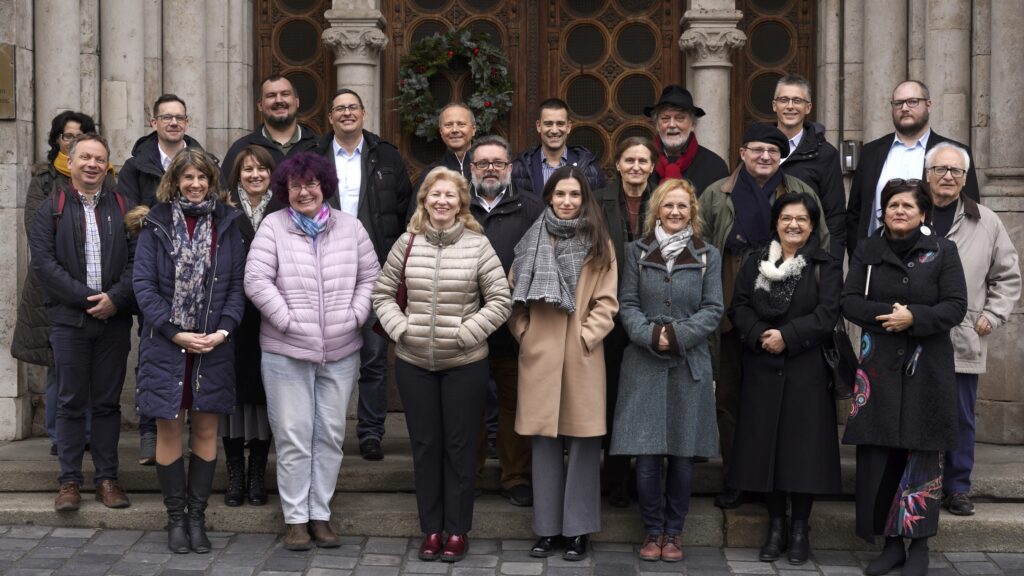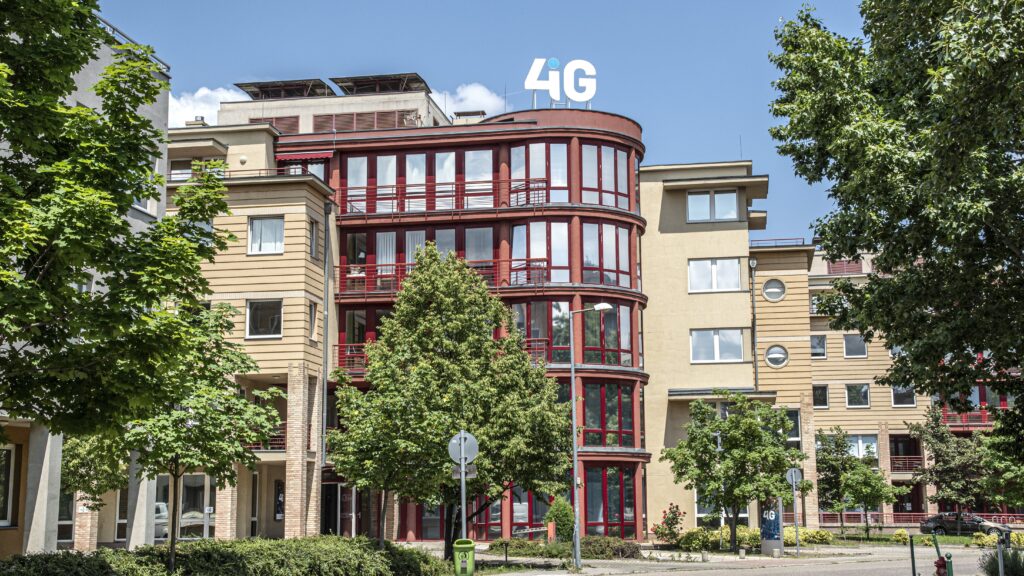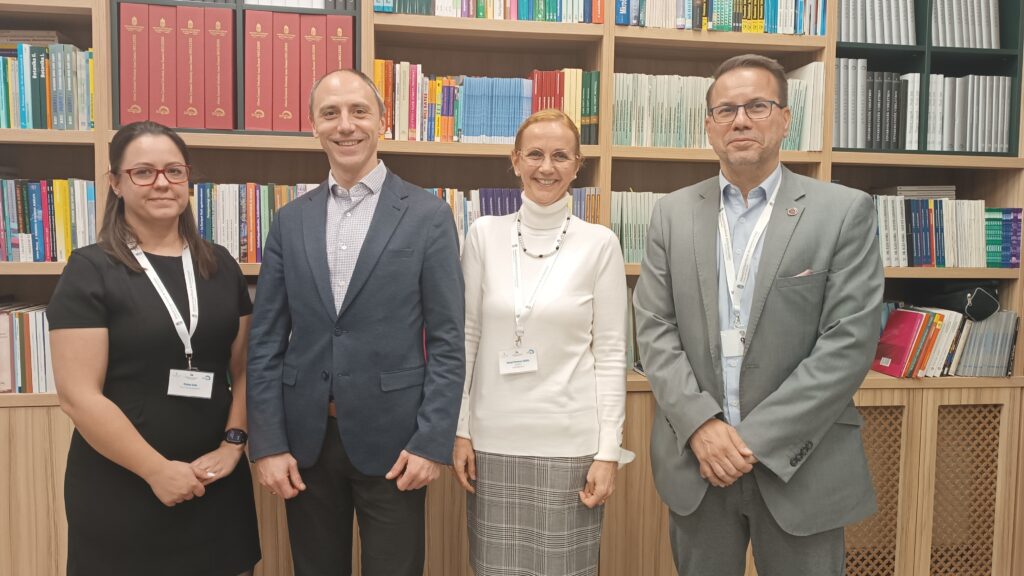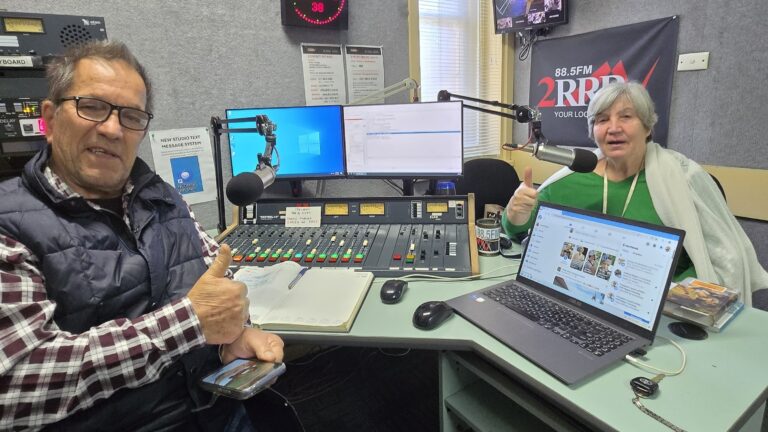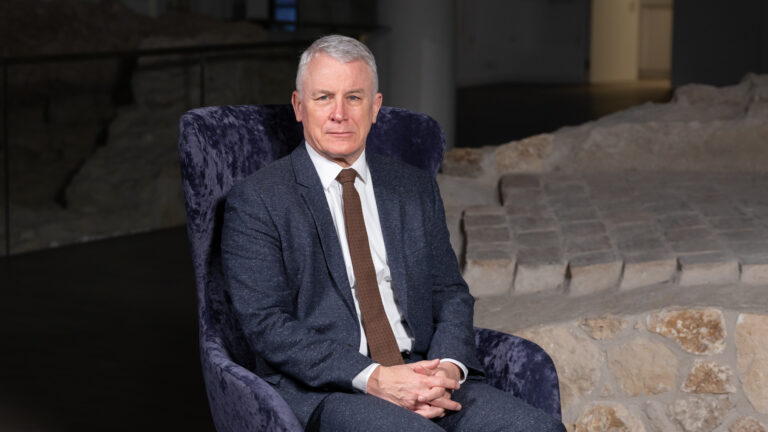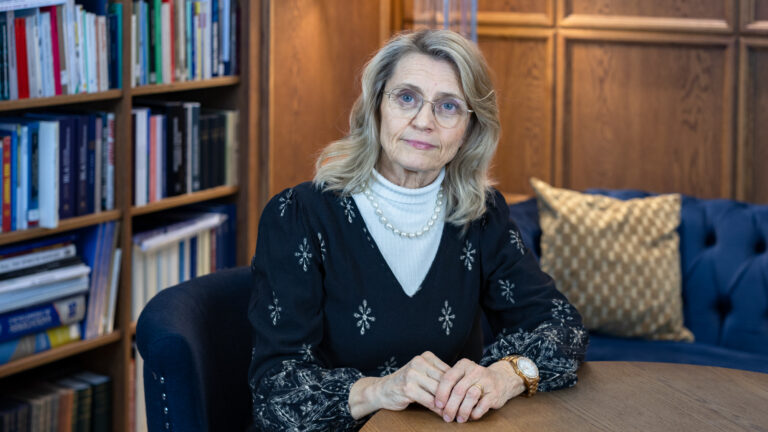Tamás Novoszáth spent a significant part of his athletic career in Szeged, Hungary. Thanks to a sports scholarship, he embarked on an adventurous journey to the University of South Carolina, where he continued his swimming career during both his undergraduate and master’s studies. After earning his master’s degree, he decided to stay in the United States. Currently, he works in Atlanta as a business data analyst for a Japanese multinational corporation, while also running two of his own businesses. Over time, he plans to establish several social enterprises in Hungary. In 2022 he presented one of his startups at the Hungarian Summit in Florida, and in 2024 he gave a talk on the relationship between sports and business at the Hungarian Congress in Cleveland.
***
You took a challenging path to America…
In hindsight, it can be called fortunate, but living through it was truly adventurous. Shortly before graduating from high school in Szeged in 2016, I began preparing for the SAT and TOEFL exams to apply to American universities. I was in touch with the swim coach at George Washington University, but when I took the above-mentioned exams, I missed the required score by just one point. I wasn’t accepted, but the coach really wanted me to join, so he suggested that I attend an academy in Virginia for six months, where I could study and swim on an athletic scholarship, then try reapplying for university admission. Since the institution was called Fork Union Military Academy and was practically in the middle of nowhere, I jokingly asked if he was really sending me to a military academy. He reassured me, saying it was only military in the sense that I’d have to wear a uniform. I received the athletic scholarship, so all I had to do was buy my plane ticket and bring $1000 with me, as they requested.
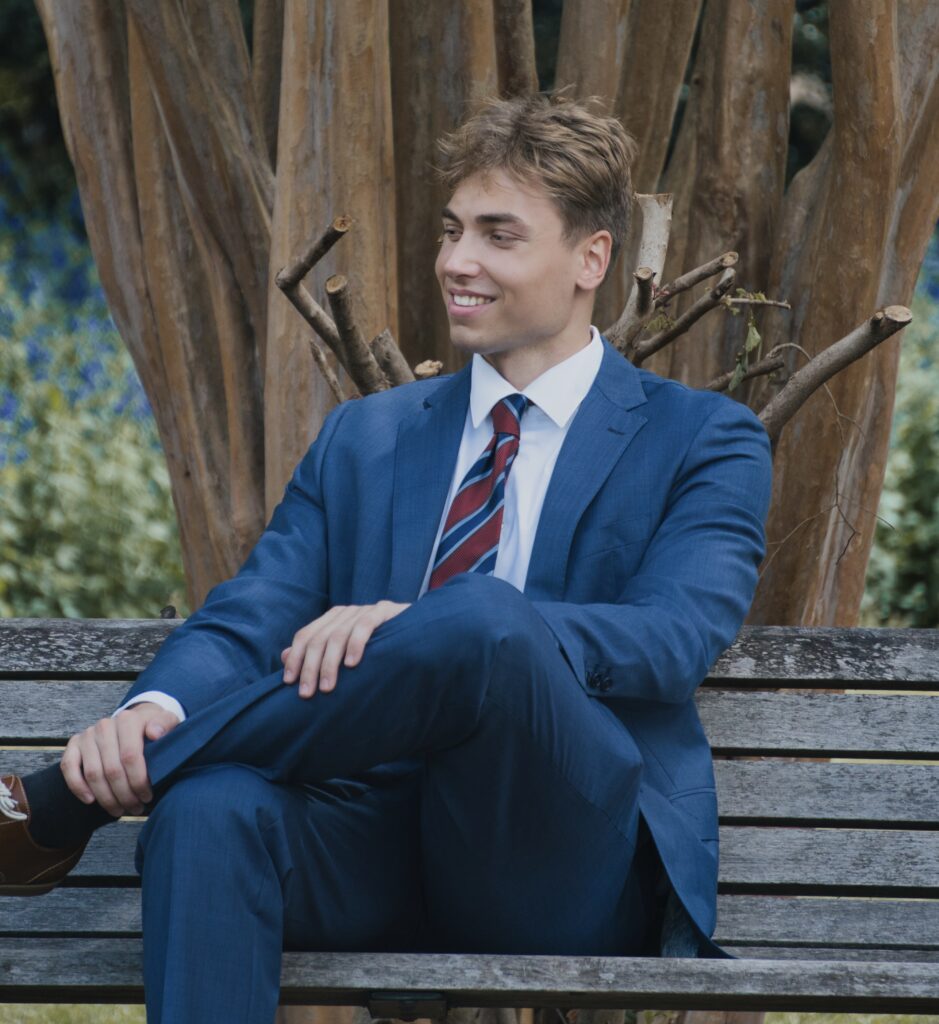
That’s not exactly pocket money. Did they tell you what it was for?
No, they didn’t. I was fortunate because, as a member of the junior national team, I was earning some ‘pocket money’ through the Gerevich sports scholarship program at the time. My parents helped cover the cost of the plane ticket, but that $1000 was my own money. At the airport, the academy coach picked me up, and during the 3–4-hour drive, I started asking him questions to get an idea of what to expect. Back then, Szeged had the only outdoor pool in Hungary suitable for competitive swimming. Swimmers from Szeged were not only known for swimming long distances and having great endurance but also for being extremely tan with blonde hair from the sun and chlorine, as we trained outdoors from May to September. I mention this because, during the car ride, the coach said: ‘You have such beautiful blonde hair, but unfortunately, we’ll have to cut it.’ That gave me a bit of a bad feeling.
When we arrived, they asked what was in my suitcase, took it, and placed it in storage, telling me we were going to get my gear. ‘Make sure you have the money you brought,’ they added. At that point, it started to dawn on me what this was all about. Before handing over my suitcase with all my civilian clothes, I asked to call home. My mom was worried, but my dad said to wait and see how things played out—it might get better. I ended up staying. After handing over my suitcase, phone, and laptop, I was given an academy laptop that had almost all communication platforms blocked. For my money, I received military gear: field dress, uniforms, accessories, and a not-so-serious rifle. Some people used theirs, but I, at least, wasn’t that type of a soldier. I didn’t have to shoot, just marched with it. Once I was punished and had to march with the rifle for a few hours because my hair was more than 5mm long. After the initial shock, things got better. I made friends, swimming went very well, and I performed great in competitions. Several university coaches came to watch our practices—that’s how I met the coach who offered me an athletic scholarship to the University of South Carolina (USC).
So your father was right?
Yes. But it wasn’t so easy to leave the academy. Around October, I told the academy coach that I couldn’t take it anymore and wanted to go home. He replied that I could only leave if I paid the full tuition. Of course, neither I nor my parents could afford that. There was no other option—I pushed through. Later they told me there was one more competition in December, right before Christmas, and if I represented the academy one last time, swam well, and earned them points, they’d let me go without requiring tuition payment. That’s exactly what happened. The competition was in Pittsburgh, PA, and from there, I went straight to the airport. Looking back, it was an adventure I’ll be telling stories about for years, though there were some darker parts as well… Without turning this into a horror story or going into too much detail, I’ll share that during my six months there, two suicides occurred at the academy—both in the chapel next to the barracks. I also realized that most people attending the academy were either planning to join the military, using the academy as a ‘gateway’, or they were troubled youths sent there by their parents to ‘straighten them out’. I was one of the few exceptions: I went only because the George Washington University swim coach, who was friends with the academy’s coach, sent me there for six months. After that experience, the thought of going back to that university—or to that coach—never even crossed my mind. I went home for Christmas and stayed in Hungary for over six months. At first, I didn’t want to return to the U.S. because of the negative experiences I had there. During that half-year, I made some poor decisions; it’s a period I don’t like to think about. I was confused and had no idea where or how to continue my life…
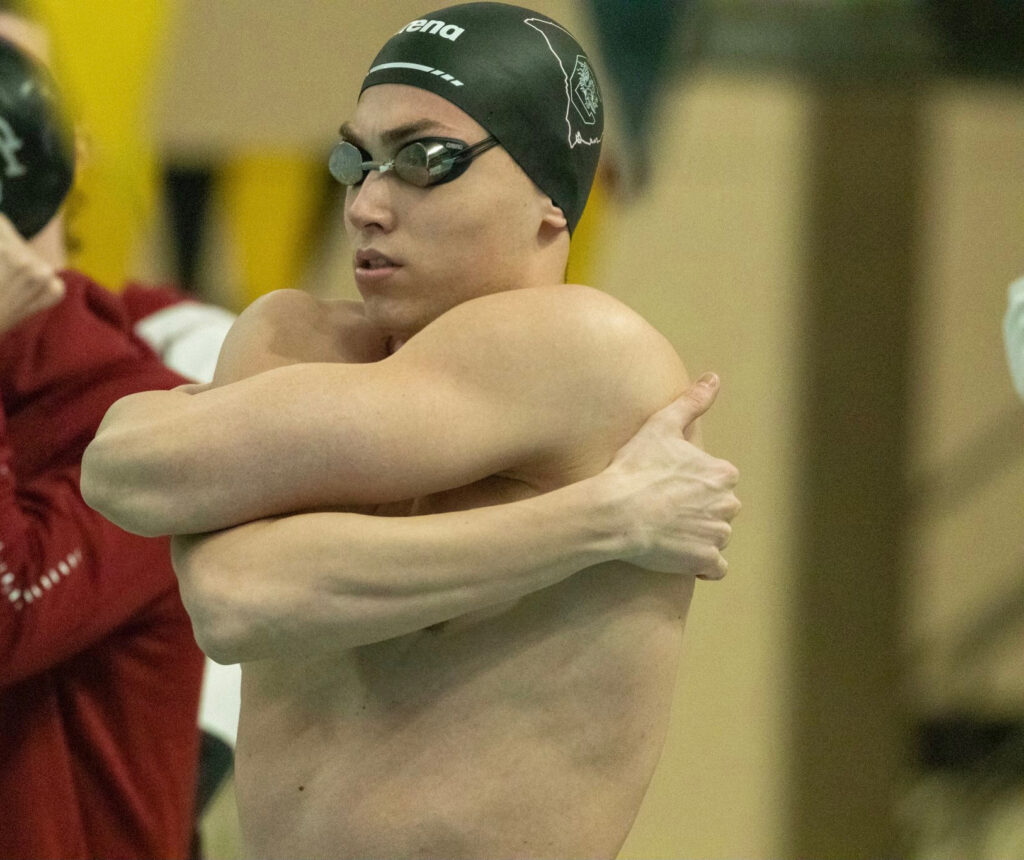
What motivated you to start again and return to America?
It was swimming, the opportunities, and the desire to earn money later on. I vividly remembered the situation at the academy when they told me I couldn’t leave unless I paid the tuition… I’ve always been interested in business, but at that moment I decided: I’ll never be in a position again where I’m limited by financial constraints. Perhaps the only good thing I did during that half-year was starting to plan a clothing brand and creating an advertising website. Neither came to fruition, but they gave me valuable experience. I also realized that if I wanted to achieve something in business, I had to return to America. No matter what anyone says, I believe it’s possible to build a successful business in Hungary, but it’s much harder and slower, and I didn’t want to wait for that. So I accepted the athletic scholarship at the USC and returned in August 2017. During my university years, swimming and studying took up all my time, I had no energy or money to continue with the clothing brand or start anything else. I could only plan… I studied finance because I knew that unless I won the lottery, I’d need to earn money, and a degree was essential for that. At the same time, I learned more during the one-year master’s program than in the previous four years combined. If only I could get those four years back…
Nevertheless, your businesses took off quickly. Tell us more about them.
USAthlete, the sports management company, was originally planned to launch in 2022, after I earned my master’s degree. However, the initial strategy wasn’t right, so the official launch didn’t happen until January 2024. We help athletes in a similar situation to mine: students who graduate from high schools in Hungary secure athletic scholarships in the U.S. I founded the company partly because, like many of my Hungarian athlete peers, I went through a lot and wanted to make the process easier for others. Another reason is that although athletes from Hungary have been coming to the U.S. long before me, their numbers have grown exponentially in recent years. In the near future, things might get a bit more challenging as an athlete has recently won a lawsuit against the National Collegiate Athletic Association (NCAA), which has tightened regulations regarding scholarships and team sizes. As a result, competition for athletic scholarships has become more intense. However, there are still plenty of opportunities, and more and more Hungarian athletes are coming every year to the U.S.
When I was a junior at USC, a soccer player from Kecskemét, Lorenzó Nagy, came to the same school I attended. By that time, I already had a car, and when I drove him to the local Department of Motor Vehicles (DMV) to get his driver’s license, I explained to him that everything I was helping him with, I had to figure out and handle on my own. Back then I only had a bicycle and without public transportation, there were days I biked 50–60 kilometers: to morning practice, back to my apartment, then to school, back again, then to the DMV to take my driving test, and finally back home before heading to evening practice. That’s just one example of the many challenges I faced. These frustrating experiences inspired me to think about how I could help the next generation of athletes who come to the U.S. on athletic scholarships avoid similar hardships. There are certain things they shouldn’t have to struggle with, and I wanted to make their transition smoother.
What services does your business offer? How many people have used it so far?
We’ve only been operating for a year, but we already have ten athletes working with us. To make our services both affordable and sustainable, we’ve created three packages that athletes can choose from based on how much information and assistance they need and how much they are willing or able to invest. Perhaps the most significant advantage we offer is our extensive network of live connections with 99 per cent of universities that participate in the most popular sports in the U.S. We initially built this network by manually researching email addresses and contacting universities one by one over several months, both via email and phone.
We help athletes create their introduction materials and portfolio, then send it to the universities and initiate contact. For the simplest and most affordable package, our involvement ends there. For athletes who don’t know much about this process, we usually recommend the higher-tier packages, which include additional communication and other services. In the most comprehensive and expensive package, we also assist with preparation for the SAT and TOEFL exams, help with scheduling visa interviews, and provide tailored support for enrollment. This package also includes NCAA registration, which requires completing a lengthy and sometimes tricky questionnaire to even participate in collegiate sports in the U.S. The mid-tier package includes fewer services, and we also offer custom packages. For these, athletes can select from 10 specific services, deciding which ones they can handle themselves and where they need our help. This allows us to create personalized quotes that suit their individual needs.
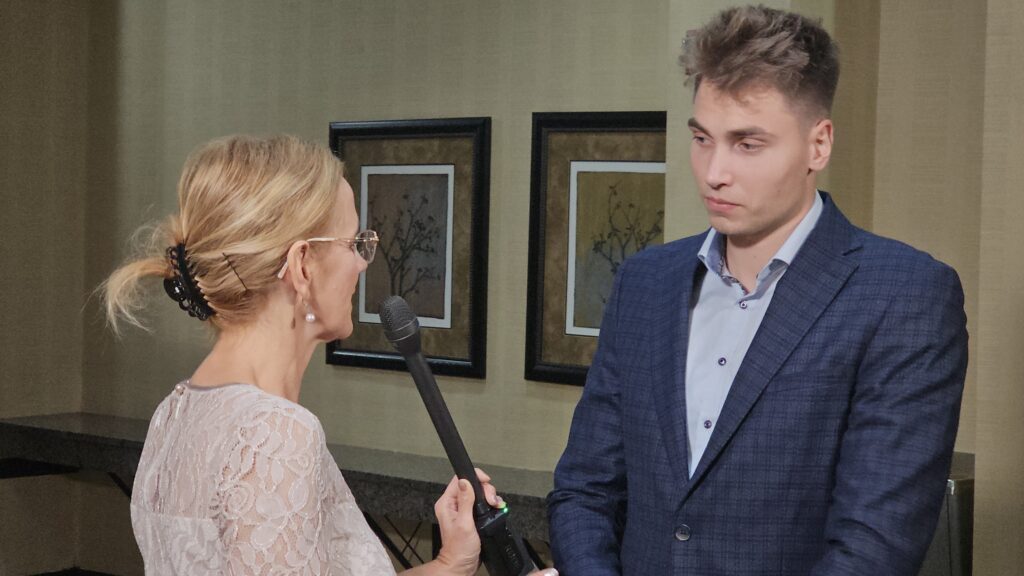
What is your other business about, and where did that idea come from?
This business is also about fostering and strengthening human connections. Ostva is a mobile application where users can list their unused items for rent, allowing others to borrow them. For example, if a family is planning a trip, they won’t need to visit multiple platforms to book accommodations on one, rent a camera on another, and borrow bikes on a third. With our app, all these options are available on a single platform. Additionally, users can utilize task-based services through the app. For instance, if someone needs help washing their car, mowing the lawn, or pretty much anything else, they can post a request for assistance. For now, the app is designed for the U.S. market and only launched recently—just in mid-November, when I received the green light from the developers. To encourage initial usage, we’re running a promotional campaign where users who complete the 100th and 1000th transactions will win $100 and $1000, respectively. This is intended to drive engagement and build momentum for the platform’s launch.
The idea for item rentals actually originates from family vacations. We often traveled to Croatia, and there’s a small town where I frequently saw several privately-owned jet skis sitting unused on the water, but I could never find a place to rent them. Even back then, I thought how great it would be to have a platform where people could list their unused items for rent—allowing them to make money while I could enjoy jet skiing. The idea for services came from my university days. There were often free Sundays when I wanted to earn some extra money. That’s when I thought how useful it would be to have a platform where users could indicate if they needed help with car cleaning, lawn mowing, or any other tasks. I founded this business on my own, but I now have a business partner.
What have you been able to apply from competitive sports to the business world?
Everything I learned in sports has contributed to who I am today. That’s why I believe that when I have children, I’ll encourage them to do sports as well, even though competitive sports can be both a blessing and a curse. It’s a blessing because it teaches discipline, focus, self-control, and perseverance. But it can also be a burden because people are often judged not by their efforts but by their results. Unfortunately, I sometimes fall into this mindset myself: I tend to evaluate primarily myself but sometimes others based on achievements only. However, I now realize that the situation isn’t so black and white. I’m actively working on this, seeing a psychologist, and trying on my own to shift my focus and handle it better. It’s a process, but I’m learning to manage it in a healthier way.
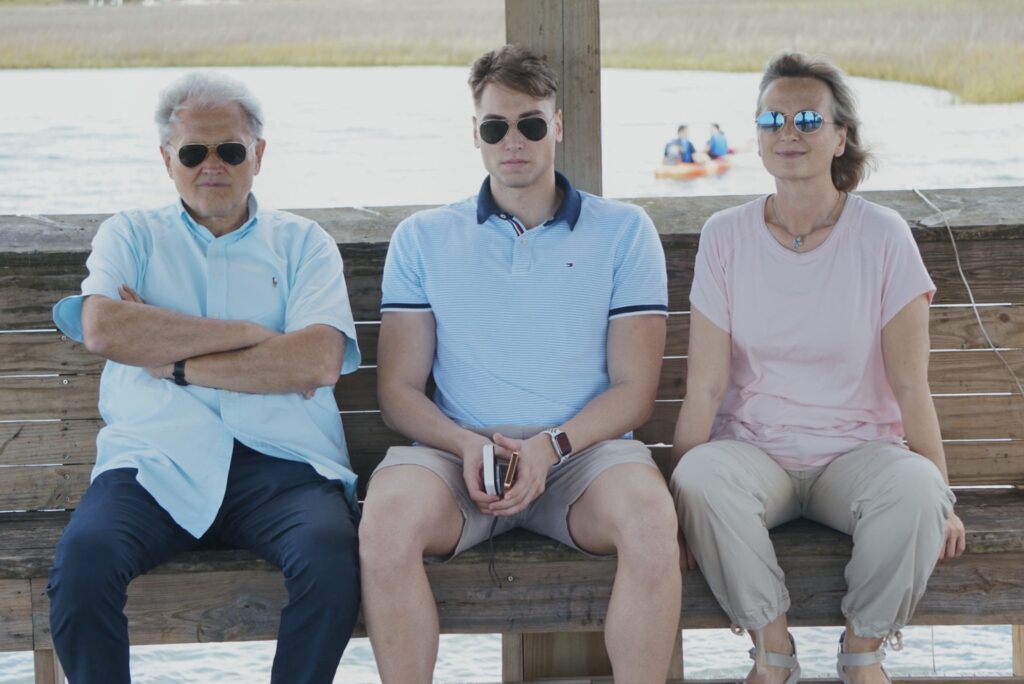
How important is the social aspect in your businesses?
I believe my businesses are about building communities. I’d be lying if I said they’re nonprofits with no business aspect, but what I’ve realized over time—and what shifted my focus—is that if I can have a positive impact on people’s lives and make them better, financial rewards will naturally follow. One of the most meaningful experiences for me was being able to bring my parents to my sister’s graduation at the USC, where she was also a competitive swimmer. I surprised all three of them: my sister didn’t know our parents would be there, and my parents didn’t expect to attend the graduation either, as such a trip is financially burdensome and would have been difficult to manage at the time. It was an incredible moment for me to witness their emotions and be part of such a significant experience. Similarly, there’s a special joy when USAthlete athletes sign their scholarship agreements. Seeing the relief and happiness on their faces, knowing that our help has opened up new opportunities for them, is immensely rewarding. These are the kinds of experiences I want to create and help others achieve so they can live a better, more fulfilling life. USAthlete and Ostva are indeed business ventures, but I believe if you can create lifelong positive experiences for others, there’s an inherent social purpose in that. And if it also generates profit, that’s just the icing on the cake.
Have you thought about starting a nonprofit business?
Yes, once I’m in a solid, stable financial position, I’d like to establish a nonprofit organization in Hungary. While business will always draw me back to the U.S., I’m determined to create a nonprofit venture in Hungary, though its exact focus is still taking shape. One thing I know for sure is that I’d like to establish a specialized investment fund to finance startups. I believe there are countless great ideas that never come to fruition simply because their creators lack the financial or other resources to make them a reality. I was fortunate that, through sports, I managed to earn an American degree and get a job here, and within two years, I was able to save enough to fund my ventures, while a software development project isn’t cheap, even by Hungarian standards. I wouldn’t necessarily limit it to supporting athletes; I’d like to be surrounded by a team that evaluates applications, listens to ideas, and decides whether an idea is viable and worth supporting. Of course, I already have my own perspective on the world and where we’re headed, as well as an idea of what’s worth investing in.
In addition to this—and since the original question was about nonprofits—, I’d also like to create something to promote sports in areas where there are no other opportunities. As I’ve mentioned, I believe sports are incredibly important, playing a key role in fostering a healthy lifestyle and shaping character. I want every Hungarian child and young person to have the opportunity to participate in sports.
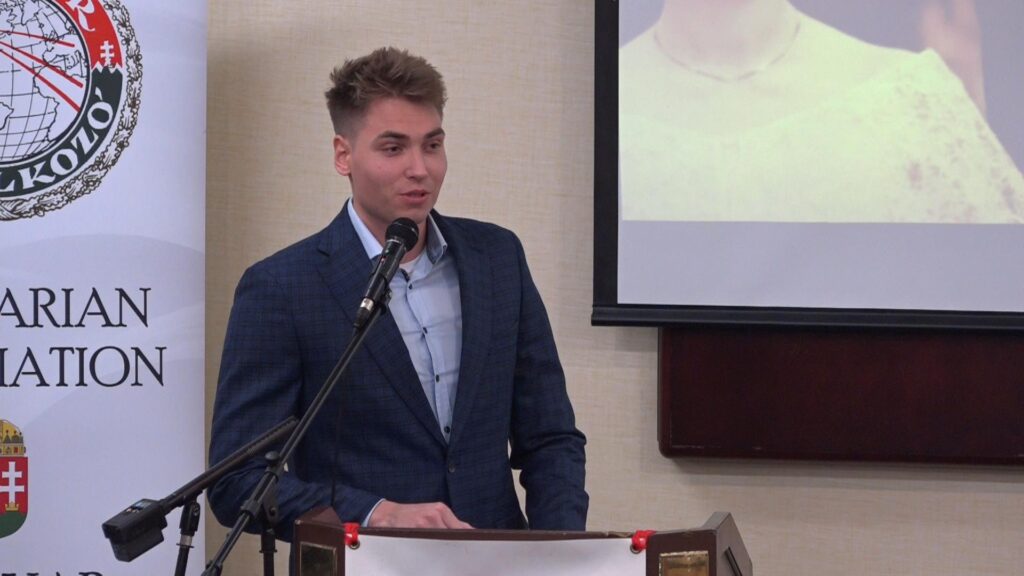
We met at the Hungarian Congress in Cleveland. Have you become involved with any local Hungarian communities in South Carolina or somewhere else?
I have a bad habit: I’m an introvert and find it difficult to step out of my comfort zone and meet new people. While I’ve improved in this regard, and there are topics, like the ones we’ve discussed, that I now enjoy giving talks about or discussing, I didn’t seek out the company of other Hungarians outside the university when I came to America. I connected with the Hungarian community in South Carolina because a kind and helpful young Hungarian couple living nearby invited me to their home for my birthday, where several other Hungarians had gathered. When I moved to Georgia to work as a business data analyst for a Japanese multinational corporation, I didn’t seek out the local Hungarian community either. I focused on my work and businesses and didn’t have the energy to look into where other Hungarians might be in the area.
I ended up attending the Hungarian Conference in Cleveland, OH because the main organizer, Gabriella Nádas, reached out to invite me to speak about the relationship between sports and business. Two years ago I attended the Hungarian Summit in Daytona Beach, FL, because I was invited by Honorary Consul Piros Pazaurek. Lorenzó and I spoke about our lives in the U.S. and about USAthlete. I haven’t attended any other Hungarian events so far, which is why I was so glad I had decided to go to Cleveland, where I met a lot of great people and made incredibly valuable connections, which I’m very grateful for.
Read more Diaspora interviews:

